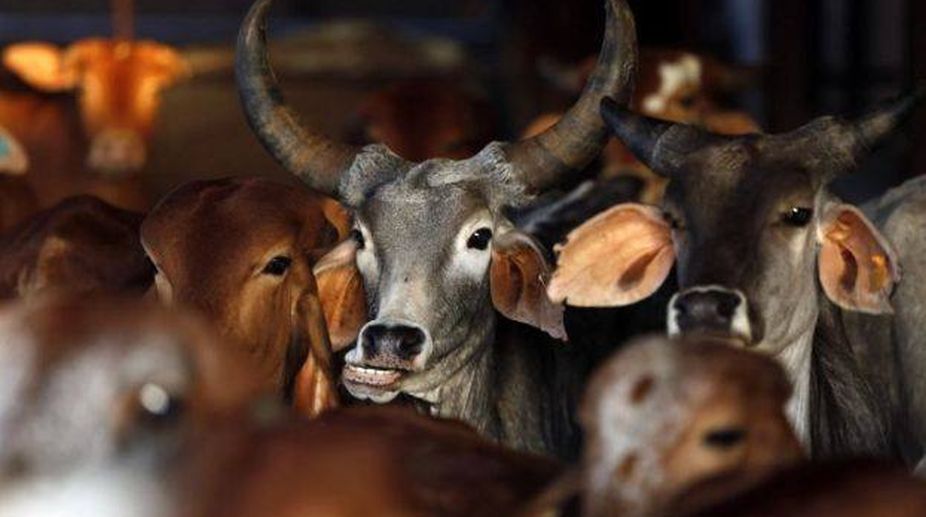The Supreme Court on Thursday did not put on hold an order banning the sale of cattle for slaughter but sought an explanation from the government if the controversial notification, which has invited widespread opposition — even from within the BJP, was unconstitutional and violated the right to food, privacy and personal liberty of Indian citizens.
A vacation bench of Justices R.K. Agrawal and S.K. Kaul, hearing a petition by a Hyderabad-based advocate who had challenged the ban order, asked the central government to file its response within two weeks. The court fixed the matter for hearing on July 11.
Advertisement
The lawyer, Mohammed Abdul Faheem Qureshi, challenged the May 26 notification as "arbitrary, illegal, and unconstitutional" and contended that it was "against the freedom of religious practice to sacrifice the animals" and violated the right to food, privacy and personal liberty guaranteed by the Constitution.
Qureshi said the notification by the Environment Ministry noted that the "slaughtering of animals for food, the foods and culinary made out of such animal flesh and offering sacrifice of animals is a part of cultural identity of such communities, which is protected from any legislative or executive encroachment (and) is not subjected to any restriction by the framers of the Constitution".
The petitioner also argued that the purchaser of cattle "shall not sacrifice the animal for any religious purpose" was contrary to the Prevention of Cruelty to Animals Act, 1960, whose Section 28 says it is not an offence to "kill any animal in a manner required by the religion of any community".
As Additional Solicitor General P.S. Narasimha wanted to make a statement on the intent behind the notification, the court asked him to say all that the government had to in response.
Narasimha told the bench that the intent behind the notification was to bring into existence some kind of regime regulating the sale of cattle for purposes other than livestock.
The government notification has triggered widespread opposition across the country. Many politicians, including those from the BJP, have also raised concern over the move because it would cause huge economic burden on cattle farmers and traders in India — the biggest seller of buffalo meat in the world.
According to estimates, India exported $4 million worth of meat last year.
Union Environment and Science Minister Harsh Vardhan, meanwhile, said the government was trying to clear the confusion and was re-examining the order.
"The Supreme Court said what we have been saying for very long. In the days to come, we will give an answer to all of this," Harsh Vardhan told reporters here after the Supreme Court notice.
He said the Environment Ministry notification — Prevention of Cruelty to Animals (Regulation of Livestock Markets) Rules, 2017, under the Prevention of Cruelty to Animals Act — was "misunderstood" as the government did not intend to force people to change their food habits.
"We have already said that whosoever has any concern related to this issue, we will seriously and honestly address those," the Minister said.
"We will put a positive action in place to address every concern and ensure that not even a single person has heartburn on the issue."
Union Minister for Law and Justice Ravi Shankar Prasad said the government notification was not intended to change peoples' eating habits but there was a need to strike a balance since a very large number of people in India revere cows.
"We should not forget that a very large section of people respects and reveres cows… we can't control the food habits of people. There has to be a balance," Ravi Shankar Prasad said.
The Law Minister referred to the Constitutional clause, saying: "The State shall… take steps for preserving and improving the breeds, and prohibiting the slaughter, of cows and calves and other milch and draught cattle".











